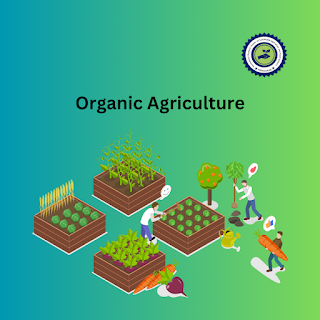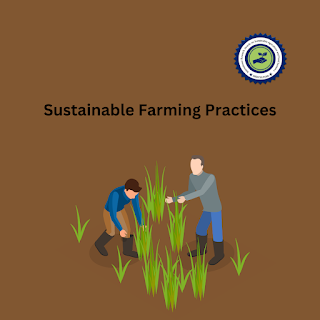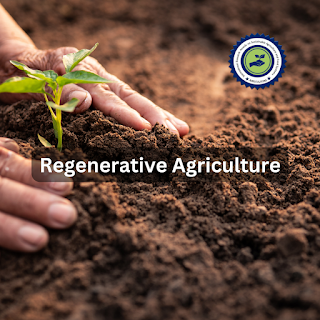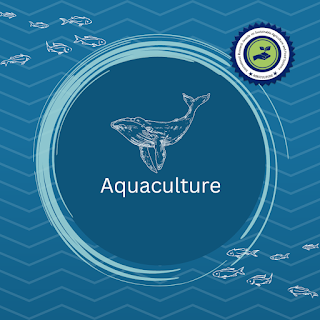Organic agriculture refers to a farming system that avoids the use of synthetic pesticides, fertilizers, genetically modified organisms (GMOs), antibiotics, and growth hormones. Instead, organic farmers rely on natural methods to enhance soil fertility, control pests, and manage weeds. These methods include crop rotation, composting, biological pest control, and the use of organic fertilizers such as manure and compost.
Tuesday, 30 April 2024
Organic Agriculture
Organic agriculture refers to a farming system that avoids the use of synthetic pesticides, fertilizers, genetically modified organisms (GMOs), antibiotics, and growth hormones. Instead, organic farmers rely on natural methods to enhance soil fertility, control pests, and manage weeds. These methods include crop rotation, composting, biological pest control, and the use of organic fertilizers such as manure and compost.
Monday, 22 April 2024
Thursday, 18 April 2024
Wednesday, 17 April 2024
Digital Farming Platforms
Digital farming platforms are revolutionizing agriculture by integrating technology to optimize farm management practices, increase efficiency, and improve decision-making. Here are some popular digital farming platforms and related hashtags:
Farm Management Software: Platforms like FarmLogs, Granular, and Trimble Ag Software offer tools for managing tasks, tracking inputs, monitoring crop performance, and analyzing data.
Hashtags: #FarmManagementSoftware #FarmLogs #Granular #TrimbleAg
Precision Agriculture: Companies such as John Deere, Trimble, and Climate Corporation (a subsidiary of Bayer) provide precision farming solutions, including GPS-guided machinery, variable rate technology, and data analytics for optimizing inputs and maximizing yield.
Hashtags: #PrecisionAg #JohnDeere #TrimbleAg #ClimateCorp
IoT Sensors and Monitoring: AgTech startups like Arable Labs, Teralytic, and CropX develop IoT devices and sensor networks for monitoring soil moisture, nutrient levels, weather conditions, and crop health in real-time.
Hashtags: #IoTinAg #AgTech #ArableLabs #Teralytic #CropX
Satellite Imagery and Remote Sensing: Platforms such as Planet, Descartes Labs, and Satelligence leverage satellite imagery and machine learning algorithms to provide insights into crop health, yield forecasting, and land use monitoring.
Hashtags: #SatelliteImagery #RemoteSensing #Planet #DescartesLabs #Satelligence
Marketplaces and Trading Platforms: Companies like Indigo Ag and Farmers Business Network (FBN) offer online marketplaces for buying inputs, selling crops, and accessing agronomic services, while also providing data-driven insights to farmers.
Hashtags: #AgMarketplace #IndigoAg #FBN
Blockchain for Supply Chain Traceability: Platforms such as IBM Food Trust and TE-FOOD use blockchain technology to enable transparent and traceable supply chains, ensuring food safety and quality from farm to fork.
Hashtags: #BlockchainInAg #SupplyChainTraceability #IBMFoodTrust #TEFOOD
Farm Management Apps: Mobile applications like AgriWebb, Farm At Hand, and Farmer's Edge offer farmers tools for recording farm activities, managing inventory, and accessing agronomic advice on-the-go.
Tuesday, 16 April 2024
Sustainable Farming Practices
Sustainable farming practices have been gaining significant traction in recent years as concerns about environmental degradation, climate change, and food security continue to grow. Here are some key aspects and trends within sustainable agriculture:
Organic Farming: The demand for organic produce has been steadily increasing as consumers become more conscious of the health and environmental impacts of conventional agriculture. Organic farming avoids synthetic fertilizers, pesticides, and genetically modified organisms (GMOs), focusing instead on natural methods of pest control and soil fertility management.
Regenerative Agriculture: This approach goes beyond sustainability by aiming to restore and enhance ecosystems. Regenerative practices include minimal tillage, cover cropping, crop rotation, and holistic grazing to improve soil health, increase biodiversity, and sequester carbon from the atmosphere.
Agroecology: Drawing on principles from ecology and traditional farming practices, agroecology seeks to create resilient agricultural systems that work in harmony with nature. It emphasizes biodiversity, nutrient cycling, and the use of locally adapted crops and livestock breeds to promote long-term sustainability and resilience to climate change.
Permaculture: Permaculture design principles focus on creating self-sustaining agricultural systems that mimic natural ecosystems. By integrating elements such as perennial crops, agroforestry, and water harvesting techniques, permaculture aims to maximize productivity while minimizing inputs and ecological footprint.
Soil Health Management: Healthy soils are essential for sustainable agriculture, as they support plant growth, water retention, and nutrient cycling. Practices such as cover cropping, composting, mulching, and no-till farming help to improve soil structure, fertility, and resilience to erosion and drought.
Water Conservation: Sustainable farming involves efficient water management to reduce consumption and minimize negative impacts on freshwater resources. Techniques such as drip irrigation, rainwater harvesting, and soil moisture monitoring help farmers optimize water use and mitigate the effects of drought.
Crop Diversity and Resilience: Monoculture farming is being increasingly recognized for its vulnerability to pests, diseases, and climate fluctuations. Sustainable agriculture promotes crop diversity through mixed cropping, intercropping, and the preservation of heirloom varieties, which enhances resilience and reduces the risk of crop failure.
- #SustainableFarming
- #RegenerativeAg
- #Agroecology
- #OrganicFarming
- #Permaculture
Monday, 15 April 2024
Regenerative agriculture
Regenerative agriculture is gaining significant attention in the agricultural community and beyond. It's an approach to farming that focuses on improving the health of ecosystems, enhancing biodiversity, and restoring soil health while also aiming to increase productivity and resilience to climate change.
Saturday, 13 April 2024
Soil Erosion
Soil erosion is a natural process that occurs when the top layer of soil is displaced or washed away by wind, water, or other environmental factors. It's a significant environmental issue because it can lead to loss of fertile soil, decreased agricultural productivity, sedimentation of water bodies, and degradation of ecosystems.
Wednesday, 10 April 2024
Monday, 8 April 2024
Saturday, 6 April 2024
Friday, 5 April 2024
Aquaculture
Aquaculture is the practice of cultivating aquatic organisms, such as fish, shellfish, and aquatic plants, under controlled conditions. It involves the breeding, rearing, and harvesting of aquatic species in ponds, tanks, cages, or other water-based systems, either in freshwater or marine environments.
Thursday, 4 April 2024
Fisheries Management
Fisheries management involves the regulation and control of fisheries activities to ensure the sustainable utilization of fish stocks and aquatic resources.
Wednesday, 3 April 2024
Tuesday, 2 April 2024
Precision Agriculture and Digital Farming
Precision agriculture and digital farming are revolutionizing the way farming is practiced by integrating advanced technologies to optimize crop production while minimizing inputs and environmental impact.
Orchard
An orchard is an area of land dedicated to the cultivation of fruit trees or fruit-bearing plants. Orchards are typically managed for the production of fruits such as apples, oranges, pears, peaches, cherries, and many others. They can vary in size from small family-owned plots to large commercial operations.
The cultivation of orchards involves various practices such as planting, pruning, irrigation, fertilization, pest and disease control, and harvesting. These practices are aimed at maximizing the yield and quality of the fruits produced.
- #OrchardLife
- #FruitFarm
- #HarvestSeason
- #FruitfulFields
- #FarmToTable
- #OrchardViews
Effects of Exercise and Pomegranate–Black Carrot Juice on Mineral Metabolism and Fatty Acid Profiles
Introduction This topic introduces the growing interest in combined lifestyle interventions, particularly exercise and functional nutriti...
-
Agri Scientist Awards Visit our page : agriscientist.org Nominations page : https://agriscientist.org/ award-nomin. .. WhatsApp: ht...









